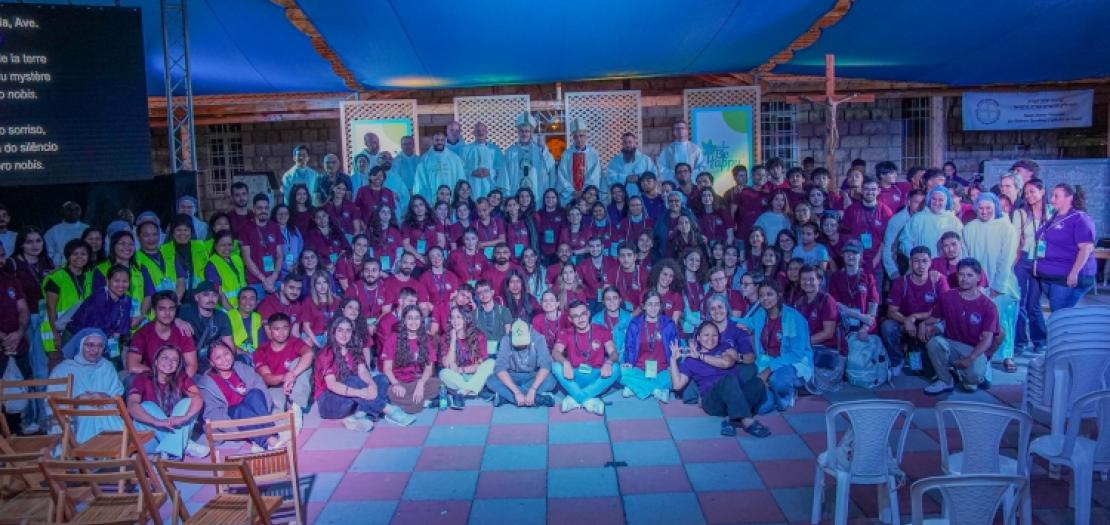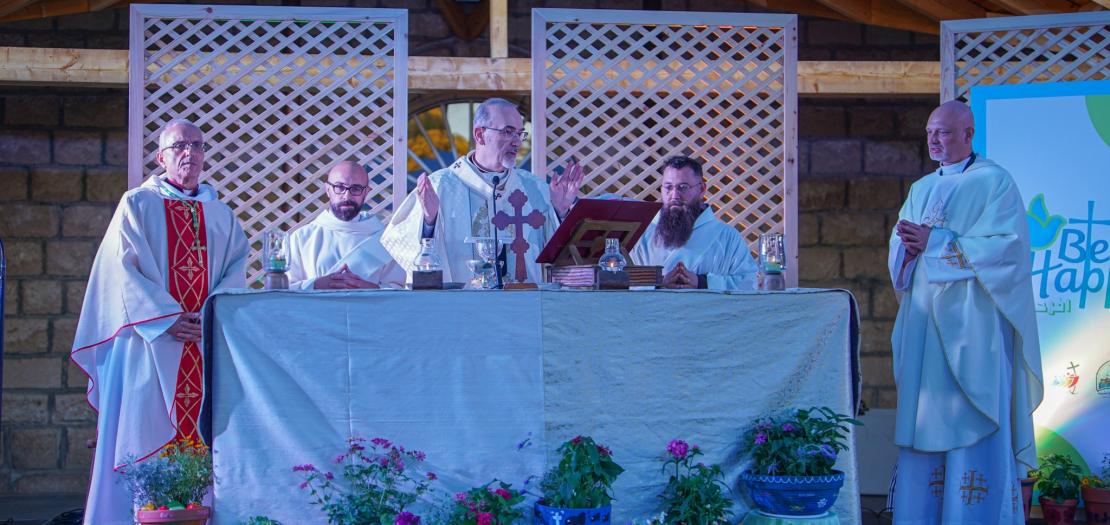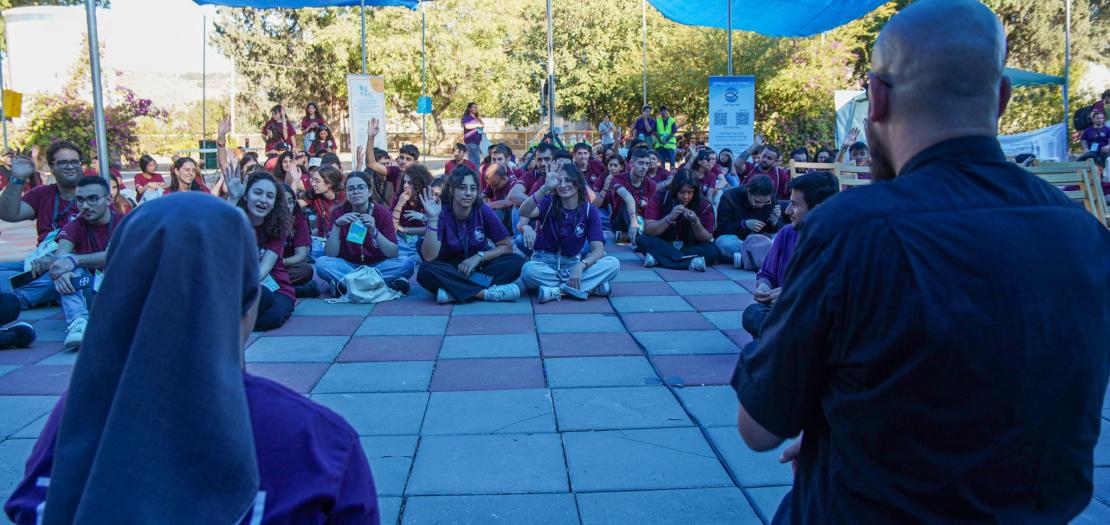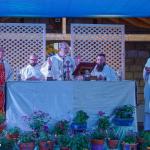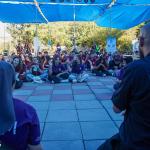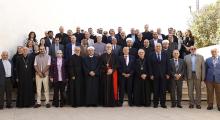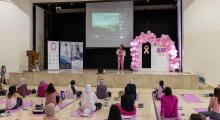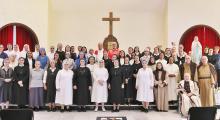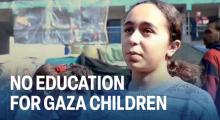Issued by the Catholic Center for Studies and Media - Jordan. Editor-in-chief Fr. Rif'at Bader - موقع أبونا abouna.org
The Saint James Vicariate for Hebrew-speaking Catholics and the General Secretariat for the Youth in Galilee organized a spiritual retreat day for the Youth, held under the theme “Be Happy” at the Shrine of Our Lady in Deir Rafat.
The gathering brought together young Catholics from more than nine parishes across the Galilee and Jerusalem for a day of prayer, reflection, and fellowship, culminating in a joyful celebration of the Eucharist presided over by His Beatitude Cardinal Pierbattista Pizzaballa, Latin Patriarch of Jerusalem. Concelebrating with him were Msgr. Rafiq Nahra, Patriarchal Vicar for Galilee, Fr. Piotr Żelazko, Patriarchal Vicar for the Saint James Vicariate, and Fr. Ramez Twal, General Chaplain for the Youth in Galilee.
A Pilgrimage of the Hear
The day unfolded as a unique pilgrimage experience. The youth began their journey by receiving a priestly blessing, symbolizing their readiness to encounter God. They then created colorful friendship bracelets inspired by the verse from Ecclesiastes 4:12: “Where one alone may be overcome, two together can resist. A three-ply cord is not easily broken”.
In another reflective moment, each participant drew a symbol of hope on a rock — a reminder of their trust in Christ, the eternal rock. Later, they received a letter titled “Slowly”, narrating the story of a young man embarking on an inner pilgrimage amid the heartache of war and uncertainty. The letter invited them to rediscover hope through the words of Saint Paul:
“Rejoice in the Lord always… And the peace of God, which transcends all understanding, will guard your hearts and your minds in Christ Jesus.” (Philippians 4:4–9)
Before the celebration of Mass, the youth were encouraged to approach the Sacrament of Reconciliation. Several priests were available to hear confessions, reminding the young people that God’s mercy meets them whenever they approach Him with trust.
“Unity in Christ Is Our Vocation”
In his homily, Cardinal Pizzaballa spoke of unity as the central vocation of the Church in the Holy Land, especially in these difficult times marked by division and suffering.
“Your gathering today,” he said, “though planned long ago and delayed by war, is an embodiment of our diocesan vocation — unity in Jesus Christ.
“Maybe we have many differences among us,” he said, “but I don’t know what unites us other than Jesus Christ. Because of Him, we can overcome our differences and diversities and find common ground — not only in our humanity but in our faith, which gives fullness to our humanity. What we believe, our concept of God, shapes our way of thinking and behavior. What we are doing here is very important in these difficult times as a Church. Each of you lives this difficulty in your own social, political, and religious context. Yet because of Jesus Christ, we keep this desire for unity alive, seeking a different way. Christian faith is a style of life, a way of being. It’s not only about what we do, but how we do it — how we express what we have in our hearts.”
He reminded them that unity begins within the same Church:
“We cannot call for unity among different Churches when we ourselves are not trying to be one in Jesus. We must love each other because of our differences — if we were all the same, life would be very boring.”
The Patriarch went on to reflect on the meaning of divine providence:
“For those who believe, we are not here in this land by chance, but by providence. Jesus wants His community, His Church, to show what it means to belong to Him. We may face difficulties, but since we have received the love of God, we cannot keep it for ourselves. Love flourishes only when it is given freely to others — when the other becomes as important to me as I am to myself.”
“The Happiness of the Beatitudes”
Reflecting on the day’s theme, His Beatitude turned to the Gospel of the persistent widow and the Beatitudes.
“The Gospel today is about the widow, not the judge,” he explained, “to highlight her faith in the face of evil. Happiness, in the light of the Beatitudes, means more than being blessed — it means happy are the poor in spirit, the meek, the persecuted, those who work for peace. They are happy not because they see results — most of the time, we don’t — but because they give to others what they have received. When we share what we have received from God, happiness becomes complete. Goodness becomes wonderful when it is shared".
He invited them to share their suffering with others, which will bring them happiness: "Because you will find someone ready to receive you in your difficulties and share it with you".
He invited the youth to persevere in faith: “Like the widow who kept asking for justice without ceasing, you too must remain steadfast. How many times have we asked God, ‘Until when?’ in these days? The widow had a judge to speak to — but we have Jesus Christ. Keep the channel of communication open through prayer, even when you do not understand.”
Referring to the story of John the Baptist, His Beatitude reminded the youth that faith includes moments of doubt and inability to understand God’s logic:
“When John the Baptist saw Jesus acting against social expectations — eating with sinners and healing on the Sabbath — he began to question whether Jesus was truly the One they awaited. Yet he didn’t keep his doubts to himself; he sent his disciples to ask. Sometimes we don’t understand what God is doing, but what matters is to keep the dialogue with Him open. A time will come when we will understand.”
He concluded his homily with words of hope: “Even though we are a small remnant, we can make a difference.”
A Witness of Hope
At the end of Mass, the youth lifted their prayers for the unity of the Church, and that they may be witness to the light in the Holy Land.
Maria, the Public Relations representative of the Youth in Galilee, explained the significance of the day:
“After the war, many of our young people were weary and in need of spiritual renewal. This day offered them the opportunity to meet others from different places and cultures — Arabic- and Hebrew-speaking Catholics — and to rediscover the joy of belonging to one Church. They came with open hearts, ready to give, to share, and to receive. Through dialogue and encounter, they discovered the richness of the Church’s diversity in this land.”
She added: “We hope to offer the world a true image of Christians in the Holy Land — a young and united Church that lives, believes, and hopes here.”


